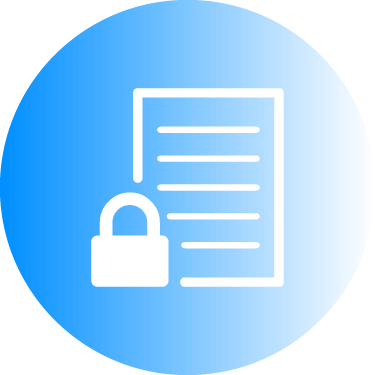Governance and integrity
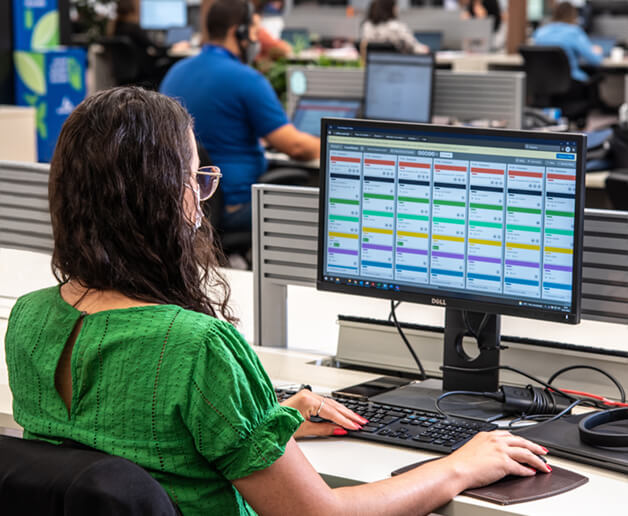

Ethics and compliance
Risk management
Information security
 Governance | Risk management | Performance
Governance | Risk management | PerformanceIntellectual capital
alignments to the ODS
![]()
![]()
The Ultra Group’s long history and its commitment to best corporate governance and integrity practices have been recognized by the market and they enable the Group to positively influence the country’s business environment and its entire value chain. Since 2011, the shares of the Ultra Group have been listed on the Novo Mercado (New Market) segment of the B3 Stock Exchange. This segment only lists companies that have the highest standards of corporate governance. The Group’s American Depositary Receipts (ADRs) on Nasdaq are rated Level III, which is also the highest standard of governance and transparency on this US stock exchange. The Group’s decision-making structure has also been recognized by the market due to its appropriate balancing of the interests of controlling and minority shareholders, who have had the right to a 100% tag along since the year 2000.
The Group’s highest governance body is the Board of Directors. At year-end 2021, it was composed of 11 members, of whom 54% were independent directors and 18% were women. None of the members currently holds an executive role in the Ultra Group businesses. Members are remunerated exclusively for their activities on the Board and on the Advisory Committees.
The Group’s bylaws establish the roles and responsibilities of the governance bodies, which also have their own respective internal regulations. The Board is responsible for defining the Group’s overall strategy, taking into consideration the impacts of the organization’s activities on society and the environment. It determines the allocation of capital and the level of exposure to risks, supervises the senior management of the businesses and organizes the succession process.
Board members undergo an evaluation process at least once during each term of office. The most recent evaluation was carried out in 2020 and aimed to measure the dimensions related to the composition and functioning of the Board and the skills, dedication and effectiveness of its members.
The composition of the Board at year-end December 31, 2021 was approved at the Ordinary and Extraordinary General Meeting (AGOE) held in April 2021, with members having an expected term of office of two years. As a result of a leadership succession process, carried out during 2021 and finalized in early 2022, certain changes were made to the composition of the Board.
In 2021, the Board of Directors met 13 times. The evolution in sustainability management was on the agenda of two meetings during the year. The Board evaluated and validated the updated materiality matrix and the long-term commitments and targets established by the Group. The integration of sustainability targets into the strategic planning process and the validation of the risk matrix, which began to include the material sustainability topics, were also on the agenda of certain meetings.

-
GROUP AMBITION
To be a protagonist in promoting governance and integrity, influencing the business environment through the adoption of best practices and ethical conduct.
Renewal
In 2021, the Ultra Group announced a plan for the succession and renewal of its senior management. The process was designed to ensure the continuity of the existing strategy, while also preparing the Group for a new cycle of growth. The Chairman of the Board of Directors, Pedro Wongtschowski, communicated his intention to leave the Board in April 2023. Consequently, in September 2021, the Board decided to prepare Marcos Marinho Lutz, then a Board member, then a for a potential recommendation to fill the position of Chairman of the Board. In January 2022, Marcos Marinho Lutz assumed the position of CEO of Ultrapar with a term of office until April 2023. This period will enable him to be fully immersed in the activities of the Group’s various businesses. Marcos has considerable experience in holding senior leadership positions in companies in the energy and infrastructure sectors.
Frederico Pinheiro Fleury Curado, previously CEO of the Ultra Group until the end of 2021, assumed the position of Vice-Chairman on the Board of Directors at the beginning of 2022. He will be able to make a valuable contribution to the Board’s decision-making due to his strategic vision and extensive experience in each of the Group’s businesses that he obtained in his previous position. He took over the position previously held by Lucio de Castro Andrade Filho, who retired after 45 years of dedicated service to the Group.
The senior management renewal process also included the appointment of Marcelo Araújo, formerly the CEO of Ipiranga, to the Corporate Development and Advocacy Executive Directorate. This is a new position created in the Holding in 2021, that will oversee the corporate areas of Sustainability, Institutional Relations, Communication, Legal and Compliance, Risks and Internal Audit. Leonardo Linden took over the position of CEO of Ipiranga in October 2021. He has had a long career in the fuel sectors in Brazil and in the United States. Prior to taking on the new position, he held the position of Sales Director in Ipiranga, and his move was also part of the planned succession process.
All these changes followed the Corporate Policy for the Appointment of Members of the Board of Directors, Advisory Committees and Ultrapar Executive Board. The selection criteria considered the diversity of knowledge, professional experience and availability of time for the positions.
Shareholder Composition1 (%)
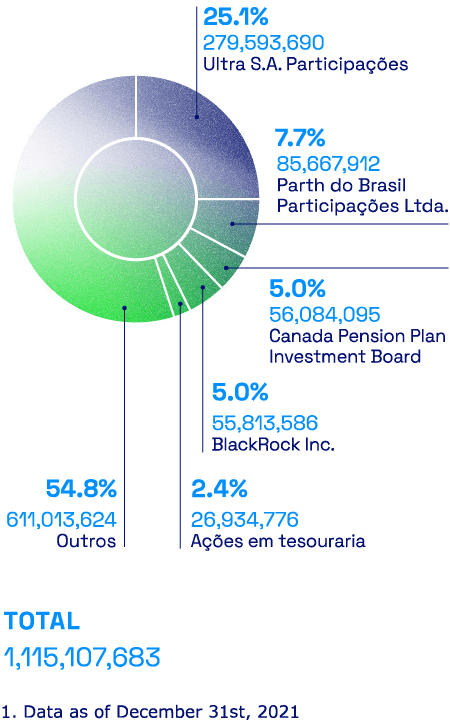
Composition of the board of Directors at 31/12/2021
| Member | Position | Independent member1 |
| Pedro Wongtschowski | Chairman | No |
| Lucio de Castro Andrade Filho2 | Vice-Chairman | |
| Alexandre Teixeira de Assumpção Saigh | Member | |
| Ana Paula Vitali Janes Vescovi | Yes | |
| Flavia Buarque de Almeida | ||
| Jorge Marques de Toledo Camargo | ||
| José Galló | ||
| José Luiz Alquéres | ||
| José Maurício Pereira Coelho | ||
| Marcos Marinho Lutz3 | No | |
| Otávio Lopes Castello Branco Neto |
1. The member is not a direct or indirect controlling shareholder of the Group; does not have the voting rights at the Board of Directors’ meetings tied to a shareholders’ agreement that has as its object matters related to the Group; is not a spouse, partner or relative, in a direct or collateral line, to the second degree, of the controlling shareholder, of the Group’s manager or the manager of the controlling shareholder; and has not been an employee or director of the Group or its controlling shareholder in the last three years.
2. The member left the Board of Directors in January 2022. The vacant position on the committee was assumed by Frederico Pinheiro Fleury Curado.
3. The member left the Board of Directors in January 2022 to assume the position of CEO of Ultrapar.
The curricula of the Board Members are available in the Governance section of the Investor Relations website at: ri.ultra.com.br
Number of directors on the board of directors who have the SKILLS and experience listed below1
| Experience as a CEO/senior manager and in people management | 11 |
| Portfolio management | 7 |
| Oil and gas value chain and logistics infrastructure | 7 |
| Chemical, retail and consumer goods | 4 |
| Finance, accounting and economics | 7 |
| Corporate governance and risk management | 9 |
| Government relations and corporate affairs | 9 |
| Technology and innovation | 6 |
| Energy mix and sustainability | 5 |
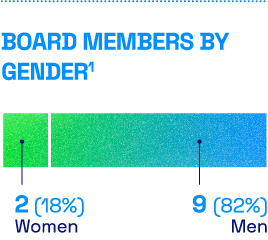
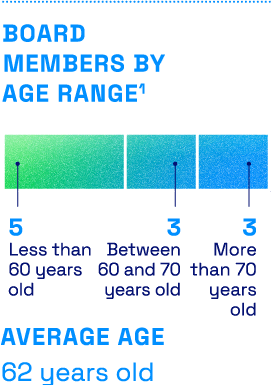
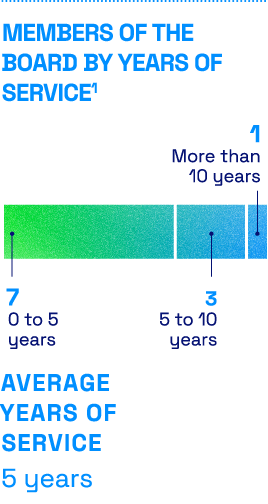
Advisory Committees to the board of Directors
The Board has three statutory Advisory Committees which are composed exclusively of Board Members. The current term of service, approved at the Board meeting on 14th April 2021, will run until April 2023.

Each committee
met 9 times
in 2021.

People
Main Responsibilities
- · Propose to the Board of Directors the parameters and guidelines of the Senior Management Remuneration Policy
- · Provide support in the processes for the appointment, development and succession of the organization’s principal senior managers and key employees
- · Monitor the performance evaluation process of the senior managers
Composition
Coordinator
- · José Galló
Members
- · Alexandre Teixeira de Assumpção Saigh
- · Lucio de Castro Andrade Filho1
- · José Luiz Alquéres
1. The member left the organization in January 2022 and his place on the committee was assumed by Frederico Pinheiro Fleury Curado.

Audit and Risks
Main Responsibilities
- · Assess the effectiveness of the systems for internal controls and risk management
- · Review the Management Report, Quarterly Reports and Financial Statements
- · Monitor the activities of the Risks, Compliance and Audit Directorate
- · Monitor the risks and strategic action plans for sustainability, finance, cyber, compliance and operations risks, through the integrated risk matrix
- · It is composed of three members, all of whom are independent members.
Composition
Coordinator
- · Ana Paula Vescovi
Members
- · Jorge Marques de Toledo Camargo
- · José Maurício Pereira Coelho

Strategy
Main Responsibilities
- · Assist the Board of Directors by providing general guidelines for the businesses, as well as outlining strategic partnerships and investment plans
- · Guide and monitor the strategic planning and budgeting processes
- · Define the capital allocation and portfolio management strategy, including mergers and acquisitions
Composition
Coordinator
- · Pedro Wongtschowski
Members
- · Jorge Marques de Toledo Camargo
- · Flávia Buarque de Almeida
- · Marcos Marinho Lutz 2
2. The member was appointed CEO of the Ultrapar Executive Board in January 2022, and ceased to be a member of the committee. The vacant position on the committee was assumed by Frederico Pinheiro Fleury Curado.
Control Bodies
The Ultra Group’s control systems, which include the Audit and Risk Committee, the Fiscal Board and the Conduct Committee, are evaluated in accordance with the guidelines set by the Committee of Sponsoring Organizations (COSO) of the Treadway Commission.
The Fiscal Board operates on an ad hoc basis. It meets at the request of the Shareholders General Meeting in order to monitor the actions of the Board of Directors and senior management.
Its responsibilities include: analyzing the management report and the financial statements; inspecting the actions of the company’s management; and verifying the fulfillment of management’s legal and statutory duties. It is composed of three standing members and three substitutes, with a one-year term of office and remuneration as determined by law.
The Conduct Committee, which is a non-statutory body, is responsible for supervising the organization’s performance in relation to the Ethics and Compliance Program and for recommending the actions to be taken in cases of violations of the Code of Ethics or corporate compliance policies. The committee reports to the Board of Directors, which is responsible for electing and removing the committee’s members.
Ultrapar Executive Board
The Ultrapar Executive Board is a statutory body composed of: the CEOs of Ultragaz, Ultracargo, Oxiteno and Ipiranga; the CEO of Ultrapar; the Director for Finance and for Investor Relations; and the Executive Director for Corporate Development and Advocacy. The Board’s responsibilities are: orient the execution of the strategic plan and monitor the operational and financial management of the businesses and their progress in achieving environmental, social and governance (ESG) targets.
Business Advisory Committees
Each business is supported by an Advisory Committee, composed of the CEO of the business; the Director for Finance and Investor Relations of Ultrapar; and by external specialists. The committee monitors the execution of the strategy and analyzes in more depth the financial and sustainability results of the operations. In 2021, a specific Advisory Committee was created to monitor the AmPm operations.
Composition of the Fiscal Board1
Coordinator and independent member
- Flavio César Maia Luz
Independent members
- Geraldo Toffanello
- William Bezerra Cavalcanti Filho
Composition of the Conduct Committee1
Coordinator and independent member
- Marcelo Fernandez Trindade
Members
- Andre Brickmann Areno, Legal Director
- Fernanda Teves de Souza, Risks, Compliance and Audit Director
- Julio Cesar Nogueira, Controller and CSC Director
- Lucio de Castro Andrade Filho(2), Representative of the Board of Directors
1. Refers to the composition in December 2021.
2. The member left the organization in January 2022 and his place on the committee was assumed by Frederico Pinheiro Fleury Curado.
Composition of the Ultrapar Executive Board
The curricula of the members of the Ultrapar Executive Board are available in the Governance section on the Investor Relations website at: ri.ultra.com.br.

Frederico Pinheiro Fleury Curado
(until December 2021)

Marcos Marinho Lutz
(from January 2022)

Rodrigo de Almeida Pizzinatto
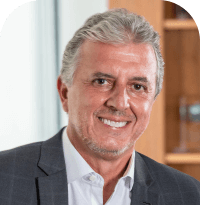
Marcelo Pereira Malta de Araujo
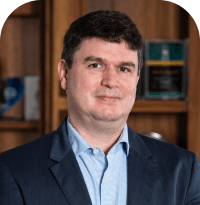
Tabajara Bertelli Costa
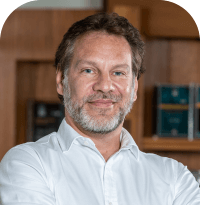
Décio de Sampaio Amaral
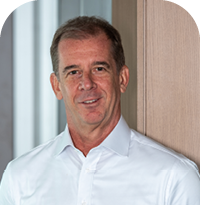
Leonardo Remião Linden

João Benjamin Parolin
REMUNERATION
The Ultra Group carries out annual market surveys to establish benchmarks in order to ensure it offers an attractive remuneration package for its senior management team. The package consists of:
Fixed remuneration, defined according to the responsibility and complexity of the position and the professional maturity of its occupant.
Short-term variable compensation, linked to the annual performance of the business and the achievement of individual goals.
Long-term variable compensation, based on the allocation of Ultrapar shares, over a long-term horizon.
As of 2022, the variable remuneration of the entire senior management team, in addition to being linked to the annual financial performance (EBITDA and operating cash flow), began to consider the team’s performance in achieving the Group’s sustainability goals.
THE ULTRA GROUP’S CORPORATE GOVERNANCE STRUCTURE
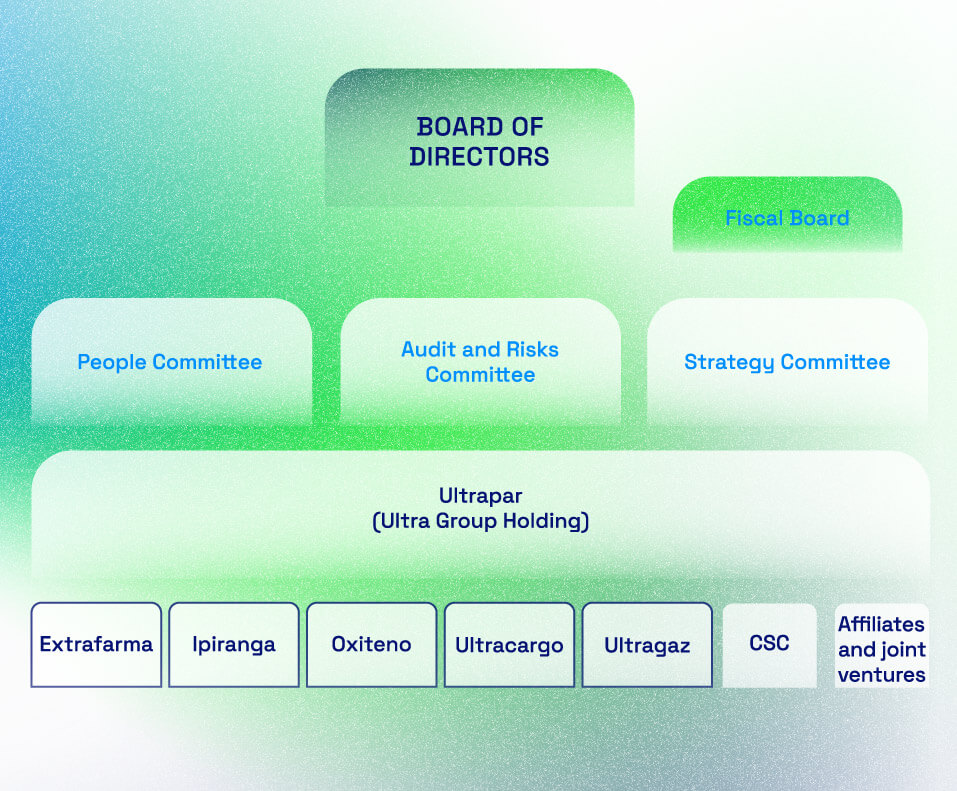
Ethics and compliance


![]()
The Ultra Group has always placed a high value on ethics, integrity and transparency. These values are reflected in the Group’s good image and reputation in society, in addition to positively influencing its employees, business partners and peers in the sector. The Group’s principles and guidelines are expressed in the Code of Ethics, established in 2004, and in the corporate policies for Anti-Corruption, Relations with Public Agents, Competition and Conflict of Interest and Transactions with Related Parties.
The Group has implemented a rigorous Ethics and Compliance Program, which is based on the Code of Ethics and supervised by the Conduct Committee. The Ethics and Compliance Program aims to reinforce and discipline the Group’s culture of integrity. It sets annual topics for communication and training, such as: fighting corruption; best competitive practices; conflicts of interest; and combating harassment and discrimination, among others. The Directorate for Risks, Compliance and Audit is responsible for administering the program and is supported in this task by the Compliance areas in the businesses. In 2021, considering the Holding and the businesses, more than 30 employees were dedicated full-time to the topic.
In relation to matters of ethics and compliance, this Directorate reports directly to the Conduct Committee. The committee approves the action plans for the Ethics and Compliance Program and monitors its execution. Senior management and employees receive an annual report on the activities and results of program.
REVISION OF THE CODE OF ETHICS AND ANTI-CORRUPTION POLICY

During 2021, the Group worked on revising the Code of Ethics and the Policy for Anti-corruption and Relations with Public Agents, reinforcing the application of its ethical principles and demonstrating its commitment to maintaining its credibility and good reputation. In the case of the Code of Ethics, the aim of the revision was to clarify the Group’s positioning and guidelines on topics that have been gaining more visibility in recent years, both internally and in society, such as: data security; social networks; diversity and inclusion; and social and environmental management.
The revised versions were published in the first quarter of 2022, and the Group expects to train all employees on their content by the end of 2022.
EVALUATION OF THE COMPLIANCE CULTURE
At regular intervals, the Group carries out a survey to assess the level of maturity of its culture of compliance, and the effectiveness of the actions of the Ethics and Compliance Program, with the support of a specialized consultancy. In the last survey, in 2020, using the Hearts & Minds methodology, the organization was classified at the Initial Proactive level, the second most advanced level in the Hearts & Minds matrix. In addition, each business received its own specific classification.
Following the analysis of the survey results, plans were drawn up to address the points for improvement identified. More than 60 action plans were formulated and began to be worked on in 2021. In addition to regular communication on the theme, the use of discussion forums was intensified in specific areas so that managers and employees could better understand how the ethics and integrity guidelines applied to their daily work routines.
The Group also established an initiative to train and raise awareness on the theme among its suppliers especially its critical service providers, defined as those companies that could represent operational and/or reputation risks to the Group. The initiative aimed to stress the importance of ethical principles in its commercial relations with them, and to provide a positive influence on, and practical support to, these important stakeholders to enable them to make progress on the theme. In 2021, the businesses identified their critical suppliers and started to implement the training program, which should be completed during 2022. It should be noted that the Group’s business partners (entrepreneurs in the Ipiranga service station network, Ultragaz resellers and AmPm and JetOil franchisees) have always been and continue to be the focus of training and awareness-raising initiatives on ethics and integrity promoted by the Group.
The next survey will be carried out in 2023. Grupo Ultra’s goal is to continually improve its profile level in the Hearts & Minds matrix.
Ultra Group: second most advanced level in the Hearts & Minds matrix
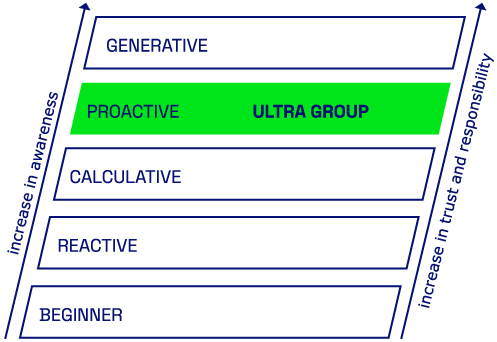

ULTRA OPEN CHANNEL
![]()
The Canal Aberto (Open Channel), which is administered by an external independent company, is the official communication channel for employees and other stakeholders, in Brazil or abroad, to clarify doubts and record eventual deviations from the Group’s Code of Ethics, corporate policies and internal norms. All reports received (anonymous or identified) are forwarded to the Directorate for Risks, Compliance and Audit, which is supported by the Conduct Committee. If necessary, cases are communicated to the Board of Directors. The reports considered to be valid or partially valid will be addressed by specific improvement measures and also contribute to further developing the Group’s control instruments.
In 2021, 790 reports were recorded, compared to 834 in 2020 and 808 in 2019. One of the advances in the use of the channel observed during the year was the increase in both the number of more detailed reports, with the inclusion of evidence, and the number of people who provided additional information when requested. The reports received in 2021 were grouped into the following categories: relationship conflicts; moral/sexual harassment; improper administrative or commercial practices; operational and financial deviations; and miscellaneous.
The Group expressly prohibits any form of threat, intimidation or retaliation to anyone who uses the channel to file a report or express a doubt.
- Ultra open channel
- Site: canalabertoultra.com.br
- Phone: 0800 701 71 72
OTHER ACTIONS
A further important initiative carried out in 2021 was the reformulation of the process of integrating new employees in relation to the themes of ethics and compliance. Additionally, senior management, in partnership with the Legal and Mergers and Acquisitions areas, provided support in the process of the rationalization of the Ultra Group’s portfolio by conducting due diligence studies on competition and compliance issues.
Among the many training courses on these themes, we would highlight the one on the Corporate Policy for Conflicts of Interest and Transactions with Related Parties, which was updated at the end of 2020. By December 2021, 94% of all employees had participated in training courses on the theme of the revised policy.
The scope of the Ethics and Compliance Program also includes the monitoring of transactions with related parties and the carrying out reputation research studies on all of the Group’s suppliers, service providers and business partners.For more information see the section on value chain .
.
The risk analysis to identify illegal or unethical practices covered 100% of the operations in the Holding, Ultragaz, Ultracargo, Oxiteno, Ipiranga and Extrafarma. In 2022, the operations of abastece aí will be included in the risk analysis process.
![]()
In 2021, there were no confirmed cases of corruption in the Group and no lawsuits related to unfair competition, trust or monopoly practices were initiated. In order to improve its processes and avoid incidents of anticompetitive behavior, such as those investigated by the Brazilian Economic Defense Council (CADE) in its operations code-named Mão Invísivel (Invisible Hand) and Dubai, the Group has established mandatory training courses for employees and offered complementary training for certain specific stakeholder groups, including in particular its critical suppliers. Since 2018, the businesses have trained their resellers on the theme of compliance in relation to their competitive practices, aiming to create a healthier market of free competition and to combat anti-competitive practices.
![]()
![]()
COMMUNICATION AND TRAINING IN ANTI-CORRUPTION POLICIES AND PROCEDURES1

| Employees communicated (%) | 2019 | 2020 | 2021 |
| Holding | 91 | 94 | 96 |
| Ultragaz | 86 | 99 | 982 |
| Ultracargo | 100 | 100 | 100 |
| Oxiteno | 89 | 98 | 99 |
| Ipiranga | 82 | 100 | 93 |
| Extrafarma | 97 | 96 | 100 |
| Employees trained (%) | |||
| Holding | 91 | 87 | 91 |
| Ultragaz | 84 | 98 | 942 |
| Ultracargo | 72 | 99 | 100 |
| Oxiteno | 84 | 94 | 94 |
| Ipiranga | 82 | 99 | 763 |
| Extrafarma | 97 | 94 | 100 |
2. Considering only eligible employees in the indicators for anti-corruption and compliance training, Ultragaz registered a percentage rate of 99% for the effective participation of employees in the related training and communication events. The percentage recorded in this report is lower, since the total number of employees used for comparison was the official HR total which included non-eligible employees.
3. The number of employees trained did not include those in the company-owned AmPm stores, due to the expansion of the network in late 2021. These employees will be trained during 2022.
Risk management
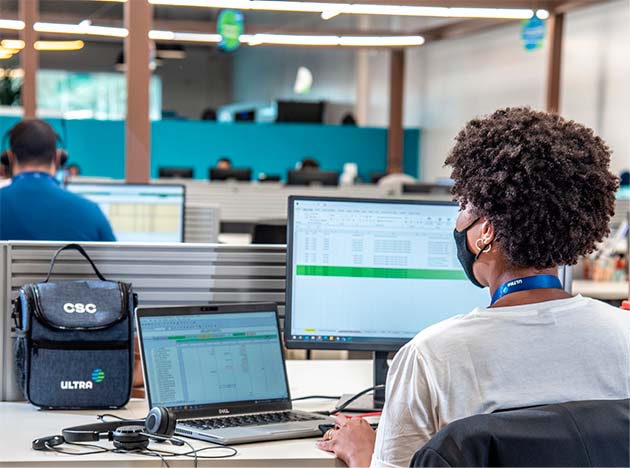

The Ultra Group’s risk management activities are oriented by the guidelines laid out in the Corporate Risk Management Policy, which was updated and approved by the Board of Directors in 2021. This policy defines the main aspects to be monitored, and the risk mitigation instruments, as well as the roles and responsibilities of those involved in the process. The Group takes an integrated approach to risk management. It consists of specific risk management processes in each business combined with the management of priority topics by the Group’s senior management team.
With the support and coordination of the Directorate for Risks, Compliance and Audit, the Risk Management area of each business carries out an assessment of scenarios to construct its own risk matrix, considering the specific characteristics of the sector. The Corporate Risk Management area is responsible for preparing the Group’s consolidate consolidated Risk Matrix and validating it with the Ultrapar Executive Board, the Audit and Risk Committee and the Board of Directors.
The risk matrix maps out each risk according to its level of impact and the degree of exposure. The risks are divided into five categories: strategic and sustainability; financial; cyber; operational; and compliance.
As a consequence of the increase in maturity level of the Group’s sustainability management, in 2021, the ESG risks (environmental, social and governance) were elevated to the category of strategic risks. Work is in progress to strengthen the monitoring of ESG risks in each business, and in the organization as a whole.
Governance of Risk Management
The Risk Management area reports to the Directorate for Risks, Compliance and Audit, which also oversees the areas of Compliance and Internal Audit. Regarding questions of risk and auditing, this Directorate reports to the Risk and Audit Committee, which in turn reports to the Board of Directors. The Directorate also reports to the Conduct Committee.
The Internal Audit area monitors business procedures and controls, identifies risks and opportunities. It also participates in the periodic updates of the risk matrix and contributes to the continuous improvement of the risk management process. It also conducts internal operational audits, in accordance with the annual Audit Plan approved by the Audit and Risk Committee. It reviews all payments made by the Group and supports the preparation of financial statements and the process of obtaining the SARBANES-OXLEY Law (SOX) certification, which is required for the presentation of the financial statements in the North American market.
Risks and Opportunities Related to Climate Change

The themes of climate change and the energy transition are part of the category of strategic and sustainability risks. They are included in the specific risk matrices of the businesses and in the Ultra Group’s consolidated risk matrix. These themes are also considered from different perspectives in the planning of individual departments and in the operating strategy of the businesses and the Ultra Group.
The Directorate for Sustainability and Corporate Affairs coordinates the activities of the work-group on energy transition. There is also a work-group on Eco-Efficient Operations, which focuses on issues related to energy efficiency and which correlates to the theme of climate change. This Directorate prepares regular reports for the CEO of the Ultra Group and the Director participates in the meetings of the Ultrapar Executive Board together with the CEO, the CFO, the Corporate Development and Advocacy Executive Director and the CEOs of the businesses. The Ultrapar Executive Board, in turn, reports on topics to the Board of Directors, whenever necessary.
At present, the organization has not estimated the total financial impact that climate change risks could have on the Group’s consolidated results. The Group expects to be able to measure this impact in the near future.
In 2021, the Ultra Group prepared an analysis of risks and opportunities linked to climate change in line with the recommendations of the Task Force on Climate-related Financial Disclosures (TCFD).
The table below describes how the main risks related to climate change affect the organization and how the Ultra Group is managing these risks.
 HOW IT IMPACTS THE GROUP
HOW IT IMPACTS THE GROUP HOW THE GROUP MANAGES RISK
HOW THE GROUP MANAGES RISK OPPORTUNITIES
OPPORTUNITIES
![]()
Physical Risk
 The increased number of extreme weather events, such as floods, fires and cyclones, could affect business facilities and production and distribution activities, which might result in the temporary interruption of operations, the inability to meet customer demands and significant financial losses.
The increased number of extreme weather events, such as floods, fires and cyclones, could affect business facilities and production and distribution activities, which might result in the temporary interruption of operations, the inability to meet customer demands and significant financial losses. Part of the annual investment program is aimed at improving the operational structure and maintenance of assets. In 2021, R$ 887 million was invested in maintenance, safety and other items.
Part of the annual investment program is aimed at improving the operational structure and maintenance of assets. In 2021, R$ 887 million was invested in maintenance, safety and other items. The operating units of the businesses have prepared structured emergency response plans.
The operating units of the businesses have prepared structured emergency response plans.
![]()
Reputation Risk
 The increased visibility of the climate change agenda could lead to a loss of credibility among consumers, B2B customers, investors, surrounding communities and other stakeholder groups. In turn, this could affect access to capital, revenue generation and the social and environmental licenses to operate.
The increased visibility of the climate change agenda could lead to a loss of credibility among consumers, B2B customers, investors, surrounding communities and other stakeholder groups. In turn, this could affect access to capital, revenue generation and the social and environmental licenses to operate. The process of consolidation of the Group’s sustainability management has accelerated over the last three years.
The process of consolidation of the Group’s sustainability management has accelerated over the last three years. Initiatives that reinforce the Group’s commitment to transparency, accountability and engagement with stakeholders on the issue of energy transition.
Initiatives that reinforce the Group’s commitment to transparency, accountability and engagement with stakeholders on the issue of energy transition. The Group’s positioning in energy transition, the development of less polluting products and services and actions to reduce emissions can contribute to maintaining the positive image of the Group and its businesses, attract new customers and consumers and increase revenues.
The Group’s positioning in energy transition, the development of less polluting products and services and actions to reduce emissions can contribute to maintaining the positive image of the Group and its businesses, attract new customers and consumers and increase revenues.
![]()
Resource Allocation Risk
 A failure to invest in research & development of new, less carbon-intensive solutions and in the adaptation of its structure to operate with clean energy sources could result in the Group lagging behind its competitors with the consequent risk of a loss of revenue.
A failure to invest in research & development of new, less carbon-intensive solutions and in the adaptation of its structure to operate with clean energy sources could result in the Group lagging behind its competitors with the consequent risk of a loss of revenue. Ultragaz, Ipiranga and Oxiteno have established robust innovation agendas that involve working closely with start-ups, partners and customers. These initiatives have already resulted in new products and services with lower carbon footprints.
Ultragaz, Ipiranga and Oxiteno have established robust innovation agendas that involve working closely with start-ups, partners and customers. These initiatives have already resulted in new products and services with lower carbon footprints. UVC Investimentos has been active in the prospecting of start-ups that focus on the environment, clean energy and urban mobility.
UVC Investimentos has been active in the prospecting of start-ups that focus on the environment, clean energy and urban mobility. Investments have been made to improve the eco-efficiency of operations and to reduce GHG emissions at Ultracargo, Ultragaz, Ipiranga, Oxiteno and Extrafarma.
Investments have been made to improve the eco-efficiency of operations and to reduce GHG emissions at Ultracargo, Ultragaz, Ipiranga, Oxiteno and Extrafarma. Such investments can guarantee access to new markets, with a consequent increase in revenues.
Such investments can guarantee access to new markets, with a consequent increase in revenues. Initiatives to increase the eco-efficiency of operations can also result in cost savings for the businesses.
Initiatives to increase the eco-efficiency of operations can also result in cost savings for the businesses.
![]()
Regulatory Risk
 Current or future regulations related to carbon pricing may represent additional costs to the businesses. Ipiranga has complied with the provisions of the National Bio-fuels Policy (RenovaBio), which came into force in 2020. RenovaBio requires the acquisition of an annual quota of Decarbonization Credits (CBios) by fossil fuel distributors. The amount is calculated based on market share.
Current or future regulations related to carbon pricing may represent additional costs to the businesses. Ipiranga has complied with the provisions of the National Bio-fuels Policy (RenovaBio), which came into force in 2020. RenovaBio requires the acquisition of an annual quota of Decarbonization Credits (CBios) by fossil fuel distributors. The amount is calculated based on market share. In 2021, the acquisition of CBios represented a cost of R$176 million for Ipiranga. 4.7 million CBios were acquired. A study carried out by Ultragaz estimated that a carbon tax on Scope 1 and 2 emissions could have an adverse impact on the business of R$ 874 thousand/year, based on a reference cost of US$ 10 per ton of CO2e (estimated by the Brazilian Business Council for Sustainable Development/CEBDS).
In 2021, the acquisition of CBios represented a cost of R$176 million for Ipiranga. 4.7 million CBios were acquired. A study carried out by Ultragaz estimated that a carbon tax on Scope 1 and 2 emissions could have an adverse impact on the business of R$ 874 thousand/year, based on a reference cost of US$ 10 per ton of CO2e (estimated by the Brazilian Business Council for Sustainable Development/CEBDS). The Energy Transition material topic is monitored by the Group’s Institutional and Governmental Relations area.
The Energy Transition material topic is monitored by the Group’s Institutional and Governmental Relations area. Regulatory risks linked to energy transition are also on the agendas of the Institutional Relations, Sustentainability and Environment areas of the businesses.
Regulatory risks linked to energy transition are also on the agendas of the Institutional Relations, Sustentainability and Environment areas of the businesses. In complying with RenovaBio, Ipiranga has contributed to boosting the Brazilian bio-fuels market.
In complying with RenovaBio, Ipiranga has contributed to boosting the Brazilian bio-fuels market. Changes in existing regulations could represent opportunities to enter new markets. For example, the possible regulation of the use of LPG in internal combustion engines would benefit Ultragaz.
Changes in existing regulations could represent opportunities to enter new markets. For example, the possible regulation of the use of LPG in internal combustion engines would benefit Ultragaz.
Information security
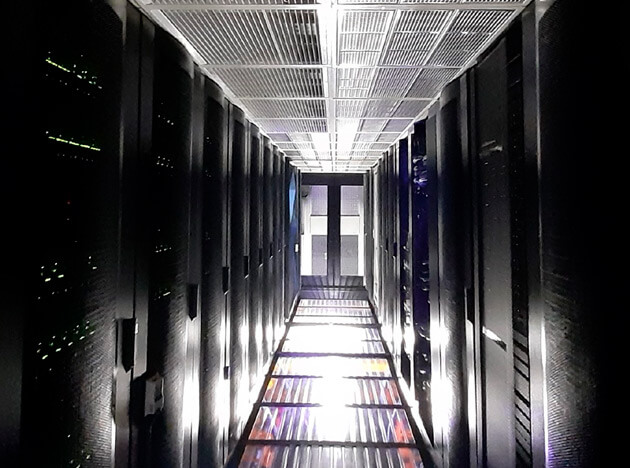

![]()
The principles and practices adopted by the Ultra Group to ensure information security and the data privacy of its stakeholder groups (employees, customers, consumers and business partners, among others) were set out in its Information Security Policy, instituted in 2017 and revised in 2021, and in its Corporate Policy on Privacy and Protection of Personal Data, approved in 2020 by the Board of Directors.
As the degree of digitization of data and processes in business has grown over recent years, the Group has been strengthening its organizational structure that deals with information security. In 2019, following the publication of the General Data Protection Law in September 2020, the Group set up an area dedicated to the subject. As its first priority, the area has directed its efforts to meeting all the requirements of the legislation.
To orient and monitor the adaptation of processes and routines in the Holding and each business, the Group developed a Privacy Program and established the Personal Data Protection Committee, reporting to the Ultrapar Executive Board. Furthermore, each business appointed a Personal Data Officer, who is responsible for promoting the privacy and data protection rules and who acts as a communication channel between the business, the owners of personal data and the National Data Protection Authority (ANPD). In addition, training courses and awareness campaigns for employees were carried out. During 2021, the businesses also concluded the implementation of their Privacy Offices and made progress in the adaptation of their processes.
In January 2021, the Ultra Group suffered a cyber-attack and, as a preventive measure, closed down its information technology systems. They were restarted a few days later, with additional layers of security. During the year, several measures were taken to further strengthen the security level of the information technology environment.
Following the cyber-attack, the Group confirmed the disclosure of certain unauthorized copies of data involving the Group’s businesses. All appropriate measures were taken, including informing the ANPD. In addition, Ipiranga received a complaint from an owner of personal data via the National Authority for Data Protection (ANPD). The company identified that the problem had been caused by an inconsistency in its records and corrected the information, as solicited by the data owner.
![]()
ESG Dashboard
Anti-corruption

Employees Communicated (%) – Ultra Group
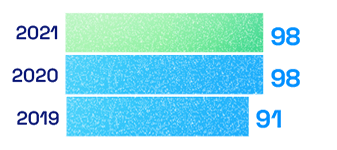
Employees Trained (%) – Ultra Group
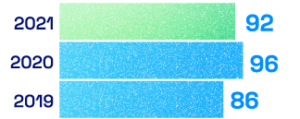
100% OF OPERATIONS
covered by corruption risk analysis. No confirmed cases of corruption.
